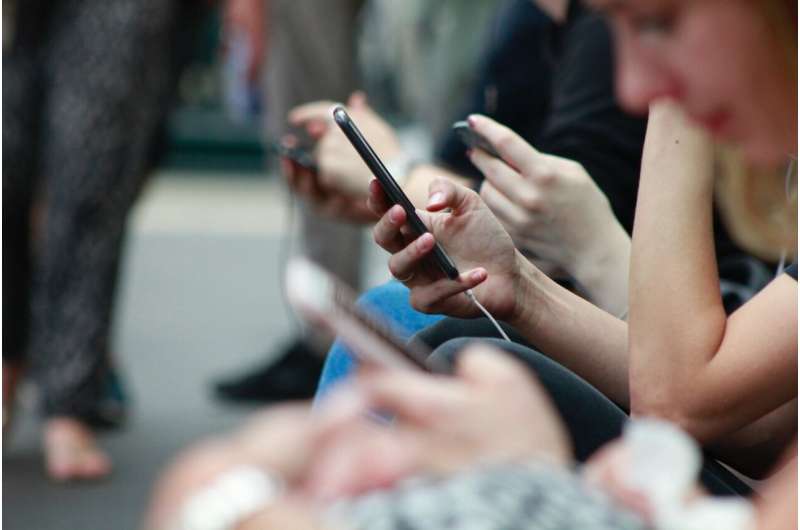This article has been reviewed according to Science X's editorial process and policies. Editors have highlighted the following attributes while ensuring the content's credibility:
fact-checked
trusted source
proofread
Study reveals how you behave on the internet is influenced by your income level

Researchers Vahid Ghafouri and Guillermo Suárez de Tangil from IMDEA Networks Institute have collaborated on a research led by Waleed Iqbal, Gareth Tyson, and Ignacio Castro from Queen Mary University of London that analyzes how real-world inequalities manifest themselves in social networks.
In the paper "Lady and the Tramp Nextdoor: Online Manifestations of Real-World Inequalities in the Nextdoor Social Network," presented at the ICWSM 2023 conference, it has been revealed that a person's income level influences the type of content they share online.
The researchers analyzed 2.6 million posts from 64,283 areas in the U.S. and 3,325 neighborhoods in the U.K. published on NextDoor, a social network where citizens post content related to problems in their neighborhoods. Because each publication is marked with a location, researchers were able to estimate the income of the users who created it by consulting the average income of the locations in the official information provided by the governments.
Specifically, those living in wealthier neighborhoods tend to engage in discussions about crime more frequently than those living in poorer neighborhoods. If this pattern holds more generally, this could potentially lead to greater attention to this issue by policy makers and disproportional investment in security and policing for those neighborhoods that demand it most.
"Surprisingly, this pattern persists despite the fact that real crime rates are lower in the wealthier neighborhoods. This suggests that rich people are more sensitive and reactive to the presence of crime," says Vahid Ghafouri, a Ph.D. student at IMDEA Networks and UC3M and a co-author of the study.
According to the research, nonviolent crimes are discussed more than violent ones overall by both Americans and British. However, wealthy Americans discussed violent crime and weapons more than their counterparts in the U.K.
In addition, does money bring happiness? The research team definitely found that richer neighborhoods express more positive sentiments in their online texts than those in lower-income neighborhoods. This is remarkably consistent in both the U.S. and the U.K.
This study is expected to lead to further breakthroughs in social media analysis as it proves the potential of AI and Natural Language Processing in predicting income, inequality, and crime rate based on user-generated content online. The paper is also published as part of the Proceedings of the International AAAI Conference on Web and Social Media.
More information: Waleed Iqbal et al, Lady and the Tramp Nextdoor: Online Manifestations of Real-World Inequalities in the Nextdoor Social Network, Proceedings of the International AAAI Conference on Web and Social Media (2023). DOI: 10.1609/icwsm.v17i1.22155
Provided by IMDEA Networks Institute




















